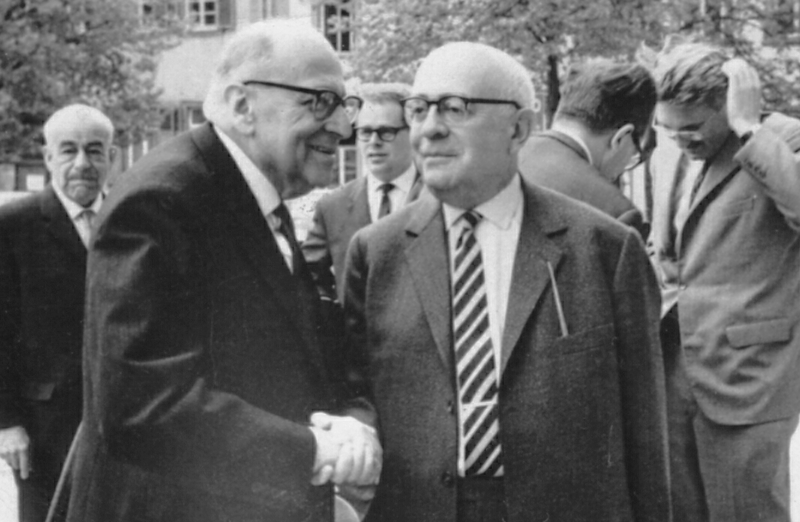I think it’s important to look beyond personalities and current political issues. Yes, Jeremy Corbyn was a repulsive figure, and that played a significant role in Labor’s defeat; yes, Brexit upended British politics. But if we look at the demographics of who voted Labor, it is not difficult to discern larger and longer-term forces in play.
Who voted Labor? Recent immigrants. University students. Urban professionals. The wealthy and the near wealthy. People who make their living by slinging words and images, not wrenches or hammers. Other than recent immigrants, the Labor voting base is now predominantly elite.
This is the Great Inversion – in Great Britain, Marxist-derived Left politics has become the signature of the overclass even as the working class has abandoned it. Indeed, an increasingly important feature of Left politics in Britain is a visceral and loudly expressed loathing of the working class.
To today’s British leftist, the worst thing you can be is a “gammon”. The word literally means “ham”, but is metaphorically an older white male with a choleric complexion. A working-class white male, vulgar and uneducated – the term is never used to refer to men in upper socio-economic strata. And, of course, all gammons are presumed to be reactionary bigots; that’s the payload of the insult.
Catch any Labor talking head on video in the first days after the election and what you’d see is either tearful, disbelieving shock or a venomous rant about gammons and how racist, sexist, homophobic, and fascist they are. They haven’t recovered yet as I write, eleven days later.
Observe what has occurred: the working class are now reactionaries. New Labor is entirely composed of what an old Leninist would have called “the revolutionary vanguard” and their immigrant clients. Is it any wonder that some Laborites now speak openly of demographic replacement, of swamping the gammons with brown immigrants?
It would be entertaining to talk about the obvious parallels in American politics – British “gammons” map straight to American “deplorables”, of course, and I’m not even close to first in noticing how alike Donald Trump and Boris Johnson are – but I think it is more interesting to take a longer-term view and examine the causes of the Great Inversion in both countries.
Eric S. Raymond, “The Great Inversion”, Armed and Dangerous, 2019-12-23.
March 26, 2020
QotD: “Gammon”
March 12, 2020
Comrade Sanders
Arthur Chrenkoff points out the amazing double-standard that has helped Bernie Sanders become a major candidate for the Democratic nomination:
Imagine a credible candidate for a significant elected office – never mind the Presidency of the United States of America, the elected office in the world – who has spent his career cheering on Mussolini, Franco and assorted Latin America authoritarian strongmen, who admires Nazi Germany’s record in job creation and public infrastructure, and who, while eschewing excesses of the past, proclaims himself a proud national socialist, but to reassure all he says he is a democratic national socialist.
Now think of Bernie Sanders and you can once again understand the pervasive double standard in our politics. The hypothetical candidate from the previous paragraph – and he or she are very much hypothetical – would be considered a political and social pariah. Bernie, on the other hand, is lionised by millions and until very recently, prior to the miraculous, Dr Frankenstein-like reanimation of Joe Biden, has been considered a probable presidential candidate by a major political party (coincidentally, of which he has never been a member in his entire career).
To the best of my knowledge, Sanders has never expressed any regret, misgivings or second thoughts about a lifetime of cheerleading for virtually every socialist/communist government around the world, from the Soviet Union to Vietnam and from Cuba to, most recently, Venezuela. It is not like the true nature of these regimes has been a secret until now. Anyone with any modicum of knowledge and common sense could see all long these were all totalitarian dictatorships and mass abusers of human rights, which nationalised poverty and whatever their meager economic or social progress it has been achieved at an unacceptable cost.
[…]
That an old Chomskyite like Sanders came so close to being the Democrat presidential candidate tells of a sickness at the heart of a major political party. Democrats still staunchly believe that Donald Trump is a Russian asset but almost ended up with an actual communist sympathser in charge. History didn’t end in 1989; it repeats itself like vomit rising in your throat.
On a lighter note, Larry Correia is amused at the current top two Democratic contenders:
That is about the most pathetic match up of losers to ever occur in any political contest in the history of ever.
Sanders is a Marxist doofus. His plans are gibberish. His philosophy is bullshit, designed to appeal to wishful thinkers who can’t do math, and greedy ass mooches. But don’t worry, he’s a total squish without an ounce of fight in him, so the DNC’s just gonna roll him over to make from for their chosen one …
Joe Biden! Who is either suffering from dementia, or is just really really dumb. (insert porque no los dos? meme girl here)
They can’t let Joe speak for more than five minutes because they know he’ll go off script and start babbling incoherently. And I’m not talking Trumpian style stream of consciousness yammering, but weird ass, dog faced pony soldiers, corn pop, hairy legs, girl sniffing, finger biting, he’ll slap you, fight me IRL, you wanna step outside?
I’ve known people who worked with Joe Biden years ago, and they all said the same thing. With him, what you see is what you get. There is no act. That’s how Joe Biden is. And he was a weird scoundrel back then, but I’m pretty sure his mind is going now.
On the plus side, Jill Biden moves faster than the Secret Service, and that lady will throw hands. Respect.
All the DNC needed to do was find somebody decent and dignified to run against Trump, but oh no, they went batshit crazy instead, and their anointed one is a doddering, senile, fool, who is so corrupt his son, Crackhead McStripperbang makes millions of dollars for imaginary jobs not at all related to his dad’s position, and they don’t even try and hide it. But don’t worry, Biden’s gonna come from behind, because nothing wins swing states like threatening to slap construction workers who are suspicious that Beto O’Dork actually does want to take their AR-14s.
As somebody who would rather reach into his own chest and pluck out his heart than vote democrat, I will admit that I find it terribly amusing all the liberals I know who are weeping, wailing, and gnashing their teeth about Old Rich White Guys There Are No Women Or People Of Color Running … While Tulsi Gabbard is over there, like WTF?
Sorry, progs. She said hurtful things about Hillary, so the media and Google basically Thanos-snapped her into dust. Meanwhile, the right are eagerly betting on whether Nikki Haley is going to run in 2024 or not … So who are the real misogynist bigots?
February 28, 2020
Is the world ready for Trump versus Bernie?
At Rotten Chestnuts, Severian considers the strong possibility that Bernie Sanders will capture the Democratic presidential nomination and face Donald Trump in the general election:
Before we get into it, can we all just pause for a second to savor the delicious irony of the Democrats suddenly discovering, after all these many many many years, that Socialism is bad? I almost feel sorry for poor ol’ Bernie. For going on four decades now, the Dems have treated him like the little kid at the grown-ups’ table. Who hasn’t been there on Thanksgiving? “Mommy, Uncle Henry’s breath smells really bad.” We’re all thinking it, kiddo, but you can’t say it. They’ve been silently agreeing with him about the need to turn America into the USSA all these years, and now they’re gonna take him behind the woodshed for it? Really?
This is point #1 in the argument, increasingly common out here in the political badlands, that Bernie Sanders is Bizarro World Donald Trump. Back in 2016, the weirdest thing for those of us not wedded to Team Republican — for that vanishingly rare breed, that is, who regard politics as politics, not sportsball in neckties — was how normal Trump sounded. This guy is supposed to be the ultimate anti-Establishment candidate, right? So why is he saying stuff that has been GOP orthodoxy since the 1970s? And why are they hammering him for it?
[…]
This is where he’s most dangerous. Like Trump was in 2016, Bernie 2020 can be seen as a pure protest candidate, a giant “fuck you” to The System. Hell, in my increasingly frequent black-pill moments, I contemplate voting for the guy — we’re not voting our way out of what’s coming, as Z Man always says, so we might as well get started. A few years of life under the Septuagenarian Stalin will give us some valuable prep for when things get really interesting under La Presidenta por Vida Alexandria Ocasio-Cortez.
Moreover, there can be great power in being the only guy in the room who’s willing to state the obvious. In this case, it has been obvious for a long time that the Democratic Party are a bunch of godless commies. Literally commies, or at least Bolshie-curious. Obvious, but always verboten to say … until now. Sanders has a rabid base that, even if you assume the “official” numbers are all lies, can’t be much less than 20% of the entire Party. Those hardcore Bernie Bros can’t possibly have any illusions about who he is and what he wants. That’s what they want, too, and again: twenty percent. The Media paints anyone to the Right of Rachel Maddow as a “white supremacist,” but can you imagine how different American politics would be if 20% of the GOP were open, avowed Klansmen?
Those are the “positives,” for lack of a better term, of Bernie being the Democratic nominee. If this is what The People really, really want — and it’s crystal clear that a lot of them do — then we should at least have a good, long, hard “national conversation” about giving it to them. Cuba, as Bernie keeps informing us, does after all have 100% literacy and free health care, and the Chinese are great at lifting people out of poverty. Let’s talk about that, live on national television, and see where it takes us.
February 19, 2020
Christopher Hitchens – Why Orwell Matters
TheHitchensArchive
Published 24 Apr 2013October 21, 2002. Christopher Hitchens giving a speech based on his book about George Orwell at The Commonwealth Club.
January 24, 2020
How Left/Right Partisanship Starts a Civil War in Spain | BETWEEN 2 WARS I 1936 Part 2 of 4
TimeGhost History
Published 23 Jan 2020Spain in the early 1930’s was practically Europe in Microcosm, with numerous political and ideological movements clashing in debate and open battles on the streets of Spain. All of this worsened in 1936 as Spain slowly descends into Civil War.
Join us on Patreon: https://www.patreon.com/TimeGhostHistory
Hosted by: Indy Neidell
Written by: Francis van Berkel
Directed by: Spartacus Olsson and Astrid Deinhard
Executive Producers: Bodo Rittenauer, Astrid Deinhard, Indy Neidell, Spartacus Olsson
Creative Producer: Joram Appel
Post-Production Director: Wieke Kapteijns
Research by: Francis van Berkel and Naman Habtom
Edited by: Daniel Weiss
Sound design: Marek KaminskiColorizations by:
– Dememorabilia – https://www.instagram.com/dememorabilia/
– Daniel WeissSources:
– CNT_Emblem Source Heralder
– Kutxa Photograph Library
– photo from Gipuzkoako Foru Aldundiko Kultura eta Euskara DepartamentuaSoundtracks from Epidemic Sound:
– “The Inspector 4” – Johannes Bornlöf
– “Dawn Of Civilization” – Jo Wandrini
– “Not Safe Yet” – Gunnar Johnsen
– “Easy Target” – Rannar Sillard
– “First Responders” – Skrya
– “Deflection” – Reynard Seidel
– “Death And Glory 2” – Johannes Bornlöf
– “The Charleston 3” – Håkan ErikssonA TimeGhost chronological documentary produced by OnLion Entertainment GmbH.
From the comments:
TimeGhost History
1 day ago (edited)
Vote on what we’re doing after B2W! -> https://www.patreon.com/posts/33300161We originally planned to just do one episode on the Spanish Civil War, but the more I researched it the more I realized how complicated everything was even before the real fighting even breaks out. To understand the battle-lines of the conflict you have to understand how they were drawn in the turbulent years of the Second Spanish Republic. In the space of just 5 years it sees numerous insurrections, revolutions, and a coup. In an era of political radicalism across the world, Spain really stands out as the most defined by it, and by 1936 is already in a state of quasi-civil war. This episode gives you a detailed insight into that. We’ll be covering the course of the war itself in a later episode.
Cheers, Francis.
January 23, 2020
QotD: The “great” modern architects
The widely accepted narrative of modernism à la Gropius is that it was some kind of logical or ineluctable development from the Arts and Crafts movement. This seems to me utterly fantastic: it is like saying that Mickey Spillane is a logical or ineluctable outgrowth of Montesquieu. It is true that in the work of certain artists, for example Mondrian, one can see a gradual change which might be considered logical, starting from figurative landscapes and ending, via ever greater abstraction, to purely geometric shapes. But even where there is such a development, it is ultimately beside the point: it does not prove that what came later was better. Each artistic product has to be assessed aesthetically on its own merits (which in architecture includes its harmony with an existing townscape), and only someone who sees with an ideology rather than with eyes could conclude anything other than that modernism has been overwhelmingly a disaster.
Moreover, claiming respectable ancestors is somewhat at variance with equal claims to be starting from zero (as Gropius put it), but such a contradiction is hardly noticed by the grand narrative history of modernism that Professor Curl attacks and destroys.
He is not unable or unwilling to praise where it is due, though it is due rarely enough; and he is particularly effective in tracing the opportunistic ideological divagations of the modernists, whose one constant predilection was for absolute power over others. Mies, for example, was attracted to socialist totalitarianism, and his only objection to Nazism was that the Nazis eventually rejected his desire to have everything built according to his prescriptions. He left Nazi Germany because he feared his previous pro-leftism made him permanently suspect in its eyes, not because he was appalled by its brutality. If only they’d let him build! But contrary to apologists for Mies, and to a legend constantly repeated, it was not the Nazis who closed the Bauhaus but Mies himself, and he left Germany only four years after their assumption of power.
Finding refuge in America, Mies quickly perceived that the power of patronage of megalomaniac building lay with giant corporations rather than with fascists or communists and persuaded many of them to build his preternaturally inhuman and uninspired monstrosities. By a strange quirk of history, and because of mankind’s perpetual propensity to make logical errors, Mies was able to pose dishonestly as anti-totalitarian and even as a friend of freedom precisely because he had fled Nazi Germany where they hadn’t patronised him. He was fortunate that soon afterwards the United States had another totalitarian enemy, the Soviet Union. Mies and his allies were thus able to claim that his totalitarian modernism was actually a manifestation of western freedom. There are many such ironies pointed up in this book that would be delicious had they not had such appalling consequences.
Corbusier was a fascist in the most literal sense of the word, and early during the Occupation advocated the removal by force of the majority of Paris’ population because it had no business to be living there. Can one wonder that a man with thoughts like that built monstrosities?
Theodore Dalrymple, “Architectural Dystopia: A Book Review”, New English Review, 2018-10-04.
January 17, 2020
Labour’s underlying problem
In UnHerd, James Bloodworth explains why the Labour Party will have to change to get back into power in Britain:

Jeremy Corbyn speaking at a Rally in Hayfield, Peak District, UK on 25th July 2018.
Photo by Sophie Brown via Wikimedia Commons.
George Orwell was famously contemptuous of much of the left intelligentsia. “England is perhaps the only great country where intellectuals are ashamed of their own nationality,” he wrote in his 1941 essay “England, Your England“. “In left-wing circles it is always felt that there is something slightly disgraceful in being an Englishman and that it is a duty to snigger at every English institution.”
Plus ça change, plus c’est la même chose.
There has always been a healthy suspicion of jingoism and flag-waving on the Left. However it wasn’t this that Orwell was referring to. Few wrote more damning screeds about the British empire than the former colonial policeman, who was always willing to give the “blimps” who ran Britain a good kicking. Rather, Orwell was referring to a more generalised contempt many on the Left felt towards Britain and — by extension — their fellow countrymen.
Socialism to Orwell meant bread and butter issues of higher wages and more freedom — freedom itself depending to a large extent on how much money one has. Yet the movement attracted its fair share of cranks. It was this penumbra of crankishness that prevented socialism from developing a mass following. A major hallmark of it was its anti-Britishness.
Jeremy Corbyn has been compared plenty of times over the past five years to the “vegetarian, fruit-juice drinking, Nature Cure quack, pacifist” oddballs Orwell wrote about in The Road to Wigan Pier. In Orwell’s time these types seemed to gravitate towards the socialist movement “like bluebottles to a dead cat”, as he put it. Since Corbyn became leader in 2015 something similar has occurred: the Labour Party has been flooded with conspiracy theorists, antisemites and various other subliterate fools. Uniting almost all of them is a profound contempt for Britain and in particular British foreign policy.
This is arguably a major reason Labour lost the recent election. “Such was the demonisation of Jeremy Corbyn,” wrote the Labour MP Liam Byrne, “that hundreds of voters I met thought Labour’s leader was a communist terrorist sympathiser who wouldn’t push the nuclear button or sing the national anthem.”
This isn’t so much the “demonisation of Jeremy Corbyn” as an accurate summation of the Labour leader’s views. Seumas Milne and Andrew Murray, two of Corbyn’s first appointments as advisers, are communists. Corbyn called members of Hamas and Hezbollah “honoured friends”. He fraternised with the IRA and argued for the abolition of Nato. He has obfuscated shamefully over acts of aggression directed against Britain, such as during the Skripal poisoning in Salisbury. It is not demonising someone to accurately list the things they have said and done.
December 12, 2019
“Socialism” and “Capitalism” in the United States
Antony Davies and James R. Harrigan look at the supposed conflict between sharing, caring socialism and raw, heartless capitalism in the context of the American political theatre:
These terms were once very clearly defined. Socialism is state control of the means of production. The intent is that these means are to be used for the public good. By contrast, capitalism is simply private ownership of the means of production. The intent is that these means are to be used to advance the interests of those who own them, which will in turn create conditions of general prosperity that can be enjoyed by all.
When polled, Americans express relatively well-defined views on both. And while nowhere near a majority of the American electorate favors a completely socialist system, a recent Gallup poll indicates that more than four in ten Americans think “some form of socialism” is a good thing. But what is “some form of socialism?” A society is either socialist or it isn’t. The state either owns the means of production or it doesn’t. There is no middle ground. Even our openly socialist politicians rarely advocate anything near as drastic as government control of the means of production.
[…]
And just as transferism is not actually socialism, the system against which transferists rail isn’t capitalism, either. When they think of “capitalism,” transferists imagine a monied class that defrauds customers, pollutes the environment, and maintains monopoly power, all because the monied class is in bed with government. But capitalism is simply the private ownership of the means of production. What people are actually describing is something more appropriately called “cronyism,” which can manifest in a socialist system as easily as in a capitalist one. Cronyism isn’t a byproduct of the economic system at all; it is a byproduct of politics.
For current examples, one need look no further than North Korea, Cuba, and Venezuela. Socialists say these aren’t examples of “real socialism,” and they’re not. There was a time when these countries were indeed socialist, just as there was a time when the United States was capitalist. But cronyism has overtaken these countries’ economic systems, just as it did in humanity’s grandest socialist experiment: the Soviet Union. Life was simply different for inner-party members than it was for workers. This is the real danger that all countries face, regardless of the animating principles of their economic and political structures.
[…]
We need to answer the core question: how much transferism do we want?
In order to figure this out, we need to come to terms with the fact that any transfer is a confiscation of wealth from the people who created it. That confiscation will decrease wealth creation in the long term by decreasing an important incentive to take the risks necessary for creating wealth. Second, we have to recognize that transferism is addictive. No matter how much we transfer, people will always want more. The United States’ $23 trillion debt, the largest debt the world has ever seen, has come about because of American voters’ voracious appetite for transfers combined with politicians’ obvious incentive to provide them.
The solution politicians have found is to pass off the cost of the transfers to taxpayers who haven’t yet been born by borrowing the money, thereby leaving to the next generation the problem of repaying the debt or enduring unending interest payments. It’s a house of cards to be sure, but from their perspective, it will be someone else’s house of cards.
In the end, we have polluted our political discourse with two words that no longer have much meaning: socialism and capitalism. In the process, we don’t call the animating principle of modern American politics what it actually is: transferism. The only winners have been the politicians who manage to gather votes by keeping the electorate in a near-constant state of friction. And they keep winning if people keep thinking in categories that ceased to have any real meaning years ago.
November 26, 2019
Communal farming nearly killed off the Plymouth Colony
What saved them was abandoning the “common property” communalism and adopting private ownership of the farms:
The first few years of the settlement were fraught with hardship and hunger. Four centuries later, they also provide us with one of history’s most decisive verdicts on the critical importance of private property. We should never forget that the Plymouth colony was headed straight for oblivion under a communal, socialist plan but saved itself when it embraced something very different.
In the diary of the colony’s first governor, William Bradford, we can read about the settlers’ initial arrangement: Land was held in common. Crops were brought to a common storehouse and distributed equally. For two years, every person had to work for everybody else (the community), not for themselves as individuals or families. Did they live happily ever after in this socialist utopia?
Hardly. The “common property” approach killed off about half the settlers. Governor Bradford recorded in his diary that everybody was happy to claim their equal share of production, but production only shrank. Slackers showed up late for work in the fields, and the hard workers resented it. It’s called “human nature.”
The disincentives of the socialist scheme bred impoverishment and conflict until, facing starvation and extinction, Bradford altered the system. He divided common property into private plots, and the new owners could produce what they wanted and then keep or trade it freely.
Communal socialist failure was transformed into private property/capitalist success, something that’s happened so often historically it’s almost monotonous. The “people over profits” mentality produced fewer people until profit — earned as a result of one’s care for his own property and his desire for improvement — saved the people.
Over the centuries, socialism has crash-landed into lamentable bits and pieces too many times to keep count — no matter what shade of it you pick: central planning, welfare statism, or government ownership of the means of production. Then some measure of free markets and private property turned the wreckage into progress. I know of no instance in history when the reverse was true — that is, when free markets and private property produced a disaster that was cured by socialism. None.
A few of the many examples that echo the Pilgrims’ experience include Germany after World War II, Hong Kong after Japanese occupation, New Zealand in the 1980s, Scandinavia in recent decades, and even Lenin’s New Economic Policy of the 1920s.
November 17, 2019
QotD: Socialist beliefs about “capitalism”
The poor understanding of economic and political institution that Marx did so much to promote remains widespread today. “Progressive” and hard-left opponents of markets hold mistaken – or, at the very least, questionable – presumptions about reality, which include:
- Wealth is either fixed in amount, or, while it might be destroyed or diminished by certain human activities (such as war), if wealth grows this growth occurs largely independently of human ideas, choices, actions, and institutions;
- trade and commerce, therefore, are largely zero-sum – that is, each exchange situation pits a party who will win against one who will lose;
- trade and commerce, in turn, involve activities are thus, at best, suspect; trade and commerce too often reward greediness and duplicity while penalizing generosity and honesty;
- the “distribution” of wealth – whether conceived as financial flows or assets, or as access to real goods and services – is determined largely by power;
- prices set on markets are largely arbitrary; prices seldom play any role beyond determining how much one party “wins” from trade and how much the other party “loses.”
- each of a handful of large groups of people, mostly as conceptualized by intellectuals with no understanding of economics, has its own “interests” – interests that are shared by all members of the group and that are at odds with the interests of other groups; for example, “labor” has interests that are are shared by all workers and that are at odds with the interests of “employers”;
- while the state can be captured by ill-intentioned people, the state – especially under unlimited majoritarian rule – is also the only possible savior of the powerless against the predations and frauds of the powerful;
- absent vigorous state intervention, ordinary people – people whose main asset is the value of their own labor – lack both the power to get their fair share of society’s wealth and the intelligence or self-discipline to use wisely whatever share of wealth they do manage to secure;
- social progress is achieved by the powerless grabbing power under the leadership of men and women of singular vision, intelligence, and courage; “the People” will be led to the Promised Land – can be led to the Promised Land – only if they faithfully follow their caring messiahs;
- those who argue in favor of free markets are either soulless mercenary cronies for the powerful propertied class or they are ideologically blinded dupes for this class; no intelligent and decent person could possibly deny the enormous benefits available to “the People” when the state is empowered to work on their behalf against the propertied few.
Don Boudreaux, “Some Links”, Café Hayek, 2017-10-08.
November 13, 2019
George Orwell: A Life in Pictures
Albion Noise
Published 27 Dec 2015George Orwell: A Life in Pictures is a 2003 BBC Television docudrama telling the life story of the British author George Orwell. Chris Langham plays the part of Orwell. No surviving sound recordings or video of the real George Orwell have been found.
Awards:
International Emmy 2004 for Best Arts Programme
Grierson Award 2004 for Best Documentary on the Arts
October 26, 2019
The Frankfurt School and you
At Rotten Chestnuts, Severian suggests we consider the origins of a large part of modern progressive thoughts:

Notable members of the Frankfurt School in Heidelberg, April 1964 at the Max Weber-Soziologentag. Max Horkheimer is front left, Theodor W. Adorno front right, and Jürgen Habermas is in the background, right, running his hand through his hair. Siegfried Landshut is in the background left.
Photograph by Jeremy J. Shapiro via Wikimedia Commons.
It occurs to me that Our Thing ought to take a long, hard look at the Frankfurt School.
Those were the guys, of course, who pioneered the notion that their political opponents must be mentally ill. Given that
- all sane people are good; and
- good people only want good things; and
- Socialism is a good thing;
then
- anyone who doesn’t want Socialism wants a bad thing;
- therefore is a bad person;
- therefore is insane.
Anyone with the common sense God gave little catfish recognizes this as begging the question. And not particularly subtle question-begging, either, which is why it took over 1,000 pages (!) of ponderous Teutonic prose to disguise it. It’s science, comrades. Only Socialism, or a .38 to the back of the neck, will cure us …
… assuming, of course, that we want to be cured.
The Frankfurt Schoolers assumed this, of course, as did all those freelance critical theorists running the NKVD’s torture chambers. But that was then. The Frankfurt Schoolers were shockingly bourgeois on so many things. They thought homosexuality was a mental illness, if you can believe it, and I doubt even Herbert Marcuse would’ve signed off on “drag queen story hour,” let alone the state-mandated chemical castration of 6 year old boys. Only the peerless enlightenment of the Current Year recognizes this, comrades.
October 4, 2019
Rise of Evil – From Populism to Fascism | BETWEEN 2 WARS I 1932 Part 4 of 4
TimeGhost History
Published 3 Oct 2019Democracy finds itself in a crisis as the 1930s take off. On a global scale, Fascist or otherwise authoritarian and repressive movements and governments seek to destroy the pillars of liberal society.
Join us on Patreon: https://www.patreon.com/TimeGhostHistory
Subscribe to our World War Two series: https://www.youtube.com/c/worldwartwo…
Hosted by: Indy Neidell
Written by: Spartacus Olsson and Joram Appel
Directed by: Spartacus Olsson and Astrid Deinhard
Executive Producers: Bodo Rittenauer, Astrid Deinhard, Indy Neidell, Spartacus Olsson
Creative Producer: Joram Appel
Post-Production Director: Wieke Kapteijns
Research by: Joram Appel and Spartacus Olsson
Edited by: Wieke Kapteijns
Sound design: Marek KamińskiSources icons: Graphic Enginer, Luis Prado
Colorizations: Daniel Weiss, Cassowary Colorizations, KlimbimA TimeGhost chronological documentary produced by OnLion Entertainment GmbH.
From the comments:
TimeGhost History
1 hour ago (edited)
This episode might be a little more academic than our other episodes, but we wanted to cover the global Fascist surge AND that it’s just too simple to refer to all totalitarian states and authoritarian and repressive movements as “Fascist”. Fascism is a very complicated concept that is still today being debated by political scientists and historians, as well as politicians and journalists. We try to give some insight to what Fascism is, what it isn’t and what all those movements and countries were, if not Fascist. We appreciate that you might have a different opinion as to what Fascism was or is, and we’re interested to hear your opinion. Just keep it civil and try to stay away from modern political debates, as that is not what we’re here for. EDIT: As for comments claiming that Fascism was left-wing/socialist, watch the video again. Don’t bother commenting if you can’t bring a proper argument to the table.
Cheers,
Joram
August 30, 2019
Communist Revolution in America? – The Red Scare 1919 I THE GREAT WAR 1919
The Great War
Published on 29 Aug 2019Get a free audiobook and 2 Audible Originals with a 30-day trial: http://audible.com/greatwar or text
greatwarto 500 500.The American intervention in the Russian Civil War, the economic hardships of workers and returning veterans and the strikes all over the US in 1919 created a hysteria that we know as Red Scare today. But how realistic was the idea of a Bolshevist revolution in America really?
» SUPPORT THE CHANNEL
Patreon: https://www.patreon.com/thegreatwar
Merchandise: https://shop.spreadshirt.de/thegreatwar/» SOURCES
US Congress. Senate. Bolshevik Propaganda: Hearings before a Subcommittee of the Committee on the Judiciary. 65th Cong., 3rd sess., February 11, 1919, to March 10, 1919
Brecher, Jeremy. Strike! Revised edition. South End Press, 1997.
Hanson, Ole. Americanism versus Bolshevism. New York and London: Doubleday, Page, & Co., 1920.
United States Department of Justice. Red Radicalism as Described by Its Own Leaders, Exhibits Collected by A. Mitchell Palmer, Including Various Communist Manifestos, Constitutions, Plans, and Purposes of the Proletariat Revolution, and Its Seditious Propaganda. Washington: Government Printing Office, 1920.
Cocks, Catherine, Peter C. Holloran, Alan Lessloff. The A to Z of the Progressive Era. Maryland: Scarecrow Press, Inc., 2009.
Dick, William M. Labor and Socialism in America. New York: Kennikat Press, 1972.
Gould, Lewis L. The Progressive Era. New York: Syracuse University Press, 1974.
Hagedorn, Ann. Hope and Fear in America: 1919. New York: Simon & Schuster, 2007.
Jaffe, Julian F. Crusade Against Radicalism: New York During the Red Scare, 1914-1924. New York: Kennikat Press, 1972.
Kornweibel, Jr., Theodore. “Seeing Red”: Federal Campaigns Against Black Militancy, 1919-1925. Indianapolis: Indiana Press University, 1998.
Hawley, Ellis W. The Great War and the Search for a Modern Order: A History of the American People and Their Institutions, 1917-1933. New York St Martin’s Press, 1979.
Murray, Robert K. Red Scare: A Study of National Hysteria, 1919-1920. New York: McGraw-Hill Book Company, 1964.
Powers, Richard Gid. Not Without Honor: The History of American Anticommunism. Yale University Press, 1998.»CREDITS
Presented by: Jesse Alexander
Written by: Jesse Alexander
Director: Toni Steller & Florian Wittig
Director of Photography: Toni Steller
Sound: Toni Steller
Editing: Toni Steller
Mixing, Mastering & Sound Design: http://above-zero.com
Motion Design: Christian Graef – GRAEFX
Maps: Daniel Kogosov (https://www.patreon.com/Zalezsky)
Research by: Jesse Alexander and Jonathan Dunning
Fact checking: Florian WittigChannel Design: Alexander Clark
Original Logo: David van StepholdA Mediakraft Networks Original Channel
Contains licensed material by getty images
All rights reserved – Real Time History GmbH 2019
July 31, 2019
All Art Is Propaganda: Christopher Hitchens on George Orwell – George Packer Interview (2009)
The Film Archives
Published on 27 Jan 2014George Packer (born August 13, 1960) is an American journalist, novelist, and playwright.
He is perhaps best known for his writings for The New Yorker about U.S. foreign policy and for his related book The Assassins’ Gate: America in Iraq.
Packer was born in Santa Clara, California. Packer’s parents, Nancy (née Huddleston) and Herbert Packer, were both academics at Stanford University; his maternal grandfather was George Huddleston, a congressman from Alabama. His sister, Ann Packer, is also a writer. His father was Jewish and his mother was from a Christian background. Packer graduated from Yale College, where he lived in Calhoun College, in 1982, and served in the Peace Corps in Togo. His essays and articles have appeared in Boston Review, The Nation, World Affairs, Harper’s, The New York Times, and The New Yorker, among other publications. Packer was a columnist for Mother Jones and has been a staff writer for The New Yorker since May 2003.
Packer was a Holtzbrinck Fellow Class of Fall 2009 at the American Academy in Berlin.
His book The Assassins’ Gate: America in Iraq analyzes the events that led to the 2003 invasion of Iraq and reports on subsequent developments in that country, largely based on interviews with ordinary Iraqis. He was a supporter of the Iraq war. He was a finalist for the 2004 Michael Kelly Award.
He is married to Laura Secor and was previously married to Michele Millon.
Books
The Village of Waiting (1988). New York: Farrar, Straus and Giroux (1st Farrar edition, 2001). Pb. ISBN 0-374-52780-6
The Half Man (1991). Random House ISBN 0-394-58192-X
Central Square (1998). Graywolf Press ISBN 1-55597-277-2
Blood of the Liberals (2000). Farrar, Straus and Giroux ISBN 0-374-25142-8
The Fight is for Democracy: Winning the War of Ideas in America and the World (2003, as editor). Harper Perennial. Pb. ISBN 0-06-053249-1
The Assassins’ Gate: America in Iraq (2005) Farrar, Straus and Giroux 2005 ISBN 0-374-29963-3
Betrayed: A Play (2008) Faber & Faber
Interesting Times: Writings from a Turbulent Decade (2009). ISBN 978-0-374-17572-6
The Unwinding: An Inner History of the New America (2013). ISBN 978-0-374-10241-8Articles
Packer, George (28 September 2009). “A Reporter at Large: The Last Mission”. The New Yorker 85 (30): 38-55. [Richard Holbrooke’s plan to avoid the mistakes of Vietnam in Afghanistan].
Packer, George (15 March 2010). “A Reporter at Large: Obama’s Lost Year”. The New Yorker 86 (4): 40-51.
Packer, George (12 September 2011). “A Reporter at Large: Coming Apart”. The New Yorker. [An assessment of the post 9/11 decade]
Packer, George (27 May 2013). “A Reporter at Large: Change the World”. The New Yorker.












